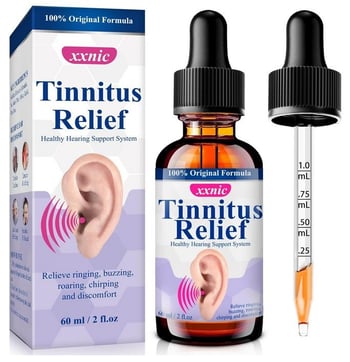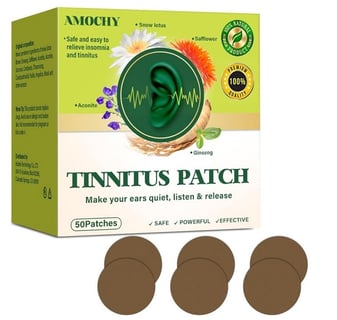Tinnitus Treatment and Relief: How to Quiet the Ringing in Your Ears
This informative guide explores the causes, symptoms, and treatment options for tinnitus, a condition characterized by a ringing or buzzing sound in the ears. Discover effective strategies to manage tinnitus and improve your quality of life.
WELLNESS
10/19/20244 min read


Have you ever experienced a persistent ringing, buzzing, or hissing sound in your ears that just won’t go away? If so, you may be familiar with tinnitus, a condition that affects millions of people worldwide. While tinnitus isn’t a disease in itself, it is a symptom of an underlying issue—whether it be hearing loss, an ear infection, or exposure to loud noises. While there’s no universal cure, there are effective ways to manage and alleviate the symptoms.
In this blog, we’ll explore what tinnitus is, how you can avoid it, and what treatment options are available to help reduce its impact on your daily life.
What Is Tinnitus?
Tinnitus is the perception of sound when there’s no external source. The sound can vary, but most people describe it as a constant or intermittent ringing, buzzing, or clicking in the ears. It can be mild and barely noticeable, or it can be loud and disruptive, making it hard to focus or sleep.
While tinnitus can happen to anyone, it’s commonly linked to:
Age-related hearing loss
Exposure to loud noises (concerts, power tools, headphones at high volumes)
Ear infections or blockages
Head or neck injuries
Medications like aspirin or certain antibiotics
How Can Tinnitus Be Avoided?
While tinnitus can’t always be prevented, taking care of your ears and overall health can significantly reduce the risk. Here’s how:
1. Protect Your Ears from Loud Noises
Avoid exposure to loud environments whenever possible.
Wear ear protection like earplugs or earmuffs in noisy situations.
Keep the volume down when using headphones or earbuds. Follow the 60/60 rule: keep the volume at 60% and limit listening to 60 minutes at a time.
2. Be Cautious with Medications
Certain medications can lead to tinnitus as a side effect. Consult with your doctor before starting any new medication, especially if you’re prone to ear issues or have had tinnitus in the past.
3. Maintain Cardiovascular Health
Good blood circulation plays a role in ear health. Conditions like high blood pressure, high cholesterol, and diabetes can contribute to tinnitus. Regular exercise and a balanced diet can help reduce this risk.
4. Reduce Alcohol, Caffeine, and Smoking
These substances can affect blood flow to your ears, exacerbating tinnitus symptoms. Moderation or avoidance can make a difference.
How to Treat Tinnitus and Its Symptoms
If you already experience tinnitus, don’t worry—there are ways to manage it. While it may not disappear entirely, treatments can help reduce the severity and improve your quality of life.
1. Address Underlying Conditions
Tinnitus is often a symptom of an underlying issue. In cases where earwax buildup, an ear infection, or another treatable condition is causing the tinnitus, addressing the root problem can bring relief. Sometimes simply cleaning out earwax can work wonders.
2. Sound Therapy
Sound therapy uses external sounds to mask or reduce the perception of tinnitus. Here are some popular options:
White noise machines: Devices that create a constant background noise (like ocean waves or rainfall) can help drown out the tinnitus, especially in quiet environments.
Hearing aids: For those with hearing loss, hearing aids can amplify external sounds, making the internal ringing less noticeable.
Tinnitus Retraining Therapy (TRT): This therapy combines sound therapy with counseling, helping you train your brain to ignore the tinnitus sounds over time.
3. Cognitive Behavioral Therapy (CBT)
Tinnitus can cause significant emotional distress, leading to anxiety, depression, and sleep problems. Cognitive Behavioral Therapy (CBT) is a proven approach to help manage these psychological aspects. By working with a therapist, you can learn to change your negative thoughts and reactions to tinnitus, making it less disruptive.
4. Relaxation and Stress Management
Stress and anxiety can worsen tinnitus symptoms. Simple relaxation techniques can help reduce their impact:
Deep breathing exercises: Slow, deep breaths can help calm the nervous system and reduce stress levels.
Meditation and mindfulness: Being present in the moment and practicing meditation can help take your focus off the tinnitus.
Yoga: A combination of stretching, breathing, and relaxation can improve overall well-being and lower stress.
5. Medications
While there are no drugs specifically designed to treat tinnitus, certain medications can help manage the symptoms. Anti-anxiety medications and antidepressants can be effective for some individuals, especially if tinnitus is linked to anxiety or depression. Always consult with a doctor before starting any medication for tinnitus.
6. Support Groups and Counseling
Living with tinnitus can feel isolating at times, but support groups offer a sense of community. Connecting with others who share similar experiences can provide valuable insights, coping strategies, and emotional support. Counseling sessions with professionals experienced in tinnitus management can also provide relief and new perspectives on living with the condition.
Conclusion
Tinnitus can be a frustrating and disruptive condition, but it’s not something you have to live with in silence. From sound therapy to relaxation techniques and cognitive behavioral therapy, there are many ways to manage the symptoms and regain control of your life.
If you’re dealing with tinnitus, it’s crucial to consult with a healthcare professional to explore treatment options tailored to your specific situation. With the right approach, tinnitus doesn’t have to ring louder than your life.


medication and other homeopathic remedies can help alleviate tinnitus symptoms
White noise machines and hearing aids can help you focus on what you need to hear
Prolonged exposure to loud environments can contribute to tinnitus
Bodymindbeing
Your guide to a fulfilling life.
Contact Us
support@bodymindbeing.me
© 2024. All rights reserved.








